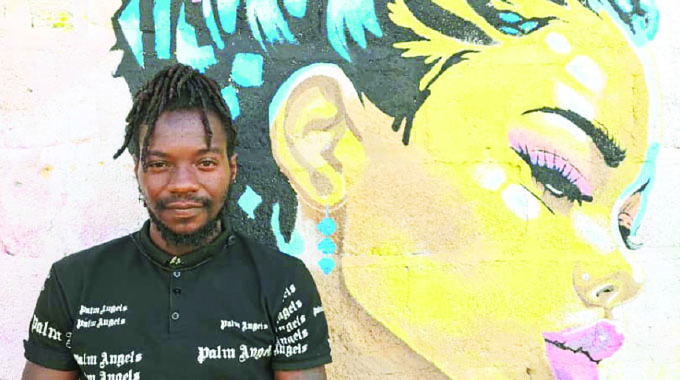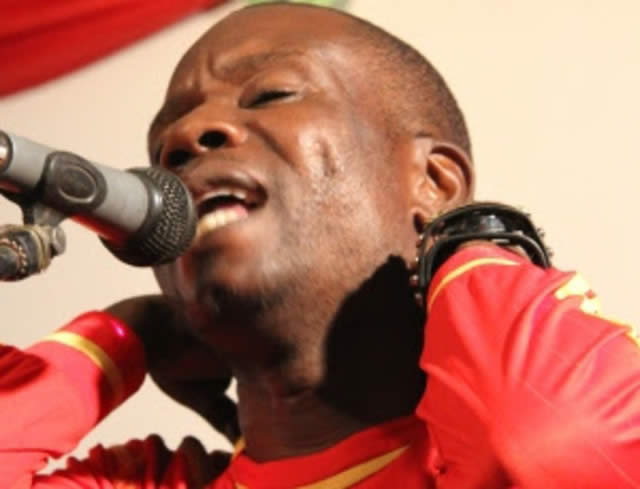‘The Convert’ not to miss

Stephen Chifunyise Theatre Corridors
Danai Gurira’s “The Convert” that is running at Prince Edward High School’s Beit Hall in Harare until December 24 is a play not to miss.
Those Zimbabweans who have complained of lack of local films and plays about the people’s struggle against colonial occupation of this land should not miss this opportunity to watch this play. “The Convert” vividly deals, in many aspects , with the response of the people of this land to the pioneer column settlers especially those who settled in the place of Harare which the settlers named Salisbury in 1890.
“The Convert” is a play for all. Not only is it an eloquent, well researched, well written, gripping and fascinating story about the fires lit in the period of 1895 to bring about the major African uprising against the racist colonial occupation “when the Africans realised that the whites were not leaving but were settling”. It is also a well told story about the birth of the independent African Christian church movement in this land and indeed in the Southern African region.
In 2012 Darlene Donice of the Los Angeles Stage Times quoted New York Times Charles Isherwood who described the play as “an ambitious play, an absorbing new play”. Donice also quoted Chris Jones of the Chicago Tribune saw the play as “as a richly complex portrait, blistering acting throughout. Gutsy. Heartfelt”. The producers of the play in Zimbabwe – Almasi Collaborative Arts have presented the play as “a riveting and thought provoking play that explores inter-woven themes of personal identity and crisis, African culture, Christianity and colonialism” .
In response to a question posed by a theatre critic, on why she wrote “The Convert”, Danai Gurira was quoted as saying: “I was fascinated about the history of my people and how rarely it is told and explored.
“Who we are today is how we are affected by what happened then. The collision of ideologies, the colonial norms, traditional practices, inform the African identity. It’s never been articulated in a way that satisfies me. It was my exploration and my own identity and of my people.”
The wealth of “The Convert” which Zimbabweans will miss if they do not see it was eloquently expressed by Emily Mann who directed the play in the United States of America in 2012 and was quoted by Darlene Donice of the Los Angeles Stage Times as having indicated to the McCarter Theatre Publication saying: “I think it is a rare opportunity for an audience to go and connect with this story. It is a journey I have not seen in a film or in the theatre.”
At the end of the opening night performance of the play on December 10, Deputy Minister of Sport, Arts and Culture Tabeth Kanengoni-Malinga congratulated Danai Gurira for effectively telling the story of the first stages of the people’s struggle for independence and for being so observant and sensitive to the many complex issues the first heroes of the struggle for liberation from colonial occupation had to deal with.
It is a pity that due to several factors , a post-performance discussion of “The Convert” could not be held on the play’s opening night. The deputy minister would have offered a critique of the play that would possibly be more valuable from the context of the historical and political relevance of this play.
When the play has run its full performance course in Zimbabwe it will be useful to discuss the story, the historical interpretation, the significance of characters such Chilford Ndlovu – the Catholic catechist whose ambition was to be a priest, Jekesa the convert and protégée of the cathecist; Mai Tambaoga the catechist’s house keeper and convert to Catholicism; Chancellor and his educated African fiancée – Prudence; Tambaoga and his uncle who take the physical force against the settlers and their own people they called the “white man’s native traitors”.
The cast comprising some of the most seasoned, prominent, committed and highly accomplished actors – Michael Kudakwashe, Rumbidzai Karize, Gideon Wabvuta, Tafadzwa Mutumbi, Charmein Mujeri, Ephilda Nyasaya, and Tawanda Mutumba coarsed together magnificently into one clear and strong voice that was clearly convinced of the story it was telling and was an ensemble that was sensitive to the necessity to articulate Danai Gurira’s highly characterising English language with distinct Shona language embrace that was humorous and yet a solid portrait of their intelligence of “the natives” to quickly master and manage the complex and unbearable white master and black servant relationship.
“The Convert” is also a vivid and most impacting demonstration of the mastery of the art of playwriting and a indication of why Danai Gurira is teaching playwriting in different countries as well as being a commissioned playwright with Yale Repertory Theatre in the United States of America.
On the evening of the opening performance of the play, the playwrights I spoke to agreed with me that “The Convert” speaks volumes not only of the good playwriting but also of the fascinating results of a well-researched and well analysed historical data that produced a convincing and believable live drama.
The close to three hours long play is compelling, captivating, demanding and consistently dramatic that one is amazed by how the cast maintains the vibrancy of the play’s physical action as well as managing the huge mass of intricate dialogues that remained on course, in spite of the ZESA electricity blackouts that forced certain scenes to be repeated when the performance resumed. The writing was so fresh and apt that it was as if one was not seeing a dramatisation but the actual event unfolding.
Credit for this is not just to the effective directing hand of the visiting American dramatist Adam Immerwahr with the assistance of Elizabeth Muchemwa and Lloyd Nyikadzino but mainly to playwriting master of Danai Gurira. This is acknowledged by Emily Mann, who was quoted by the Los Angeles Times saying: “Danai has a unique perspective of being both Zimbabwean and American, being a great actress and a great writer and someone who has a real mastery of the English language and theatrical English language.”
All Zimbabweans should be delighted to know that Danai Gurira is a Zimbabwean that has demonstrated eloquently the viability of a theatre profession and has become a theatre industry icon in Zimbabwe and the United States of America.
Those who saw her entering the theatre arts field as a member of CHIPAWO Youth Group with a public performance of a play “Chill Out” they created and was directed by Robert McLaren and those who witnessed her bold theatre apprenticeship with Over The Edge Theatre, must surely delight at how such humble beginnings in Harare has produced such a multi-award-wining playwright and actor.
For writing “The Convert” Danai Gurira has won six Ovation Awards, the Starvis Award, the Edgerton New American Plays Award, the Whiting Award and two Black Alliance Awards. In 2006 she won the Obie Award, the Outer Critics Circle Award, the Helen Hayes Award and the John Gassner Award for co-writing “In the Continuum” with Nikkole Salter. In 2010 she won the Best New Play at the Helen Hayes Awards and the Best Playwright at the NAACP Theatre Awards for writing “Eclipsed”.
Danai Gurira has, in this short nine-year period of full time theatre career , after obtaining her Master of Fine Arts in Acting at New York University in 2004 acted in nine feature films and has featured in six major television dramas that have been shown on TV networks such as NBC,ABC, Fox, HBO, AMC and Showtime. She has also acted in 10 plays that have been staged on the New York Stage, on Broadway and Off-Broadway stage, Philadelphia Theatre Lincoln Centre Theatre, the Edinburgh Fringe Festival, HIFA and at the Wooly Mammoth Theatre.
- Feedback: [email protected]








Comments